|
21st December 2019 It's the last Saturday night before Christmas and we're at Matakishi's for some board games. This is a game about accumulating stocks in railway companies, running railway companies and paying out dividends. Yep, this is 'Irish Gauge' and not 1830. Irish Gauge is a game that simultaneously is the same as and also completely different to 1830. That is, it shares the same themes as 1830, but is a quite different game. What's in a game? Irish Gauge components.
How's it play? We begin with setup, which is pretty simple.
Initial auction Before normal play commences, there is a 'initial auction' This is where players get to bid on and auction one share from each of the 5 companies.
In their turn, the active player can perform 1 of 4 actions, these are: Place track, place a special interest, auction a share and call for a dividend. Place track: This is probably the most common action in the game
Endgame The game ends when there are no more cubes in the bag, either because of a dividend being called or placing a cube as a special interest on the board. All players tot up their cash plus the initial value of the shares they own. Highest cash wins. Overall
Irish Gauge is a railway building game with stocks and shares and companies. It's actually quite a common theme in board games. But Irish Gauge plays nothing like any of these other games. It seems like the basic strategy is that players need to build railways, to issue dividends, to buy shares. Simple, right? Not necessarily. Whilst players may want to maximise their railway network before calling dividends, to get as much money as possible to have more funds when bidding on shares during an auction. Waiting a long time to buy shares is a risky move. Why? There limited opportunities to call for dividends because when the game starts, there will only be 22 cubes in the bag and each dividend uses 3 cubes. So there's maximum of 8 times a dividend can be called - and the last dividend will be with 1 cube! This is of course, provided nobody uses cubes to upgrade towns. So shares bought later in the game will benefit less because there will be less dividend pay outs. This isn't so bad if you get a shares at the initial value, but that's unlikely to occur. So paying an extra 20 to get a share that only pays out 5 twice is actually a loss of 10! This means players will want to get shares as quick as possible, but at the same time, it's prudent to wait and see if other players have low funds as this is a great time to trigger an auction, since they may have to pass, giving the active player a share at the initial value. It's like some sort of horrible balancing act. There's more as well. If a player thinks they benefit from a dividend more than anyone else, then they might ignore buying shares or improving their network and may just call dividend after dividend and 'run out' the game. However there's a random element to dividends, so they may scupper themselves. After playing the game a couple of times: It seems to me that how a player places their railway lines is a bit of a 'no-brainer'. But on reflection I don't think this is as much of an issue as I first thought. Perhaps when to call for dividends may seem more vital for the game than anything else - provided the right cubes are pulled from the bag of course. There's a lot to think about here, which is good. Finally, Irish Gauge plays as fast as a roadrunner with it's backside on fire. If you're used to slow and meaty railway games, Irish Gauge may feel quite fresh with it's relatively short play time. I'm not certain if Irish Gauge will stand up to extended play. But it's worth giving it a couple of plays at least.
0 Comments
Leave a Reply. |
AuthorI play, I paint. Archives
March 2024
Categories
All
|

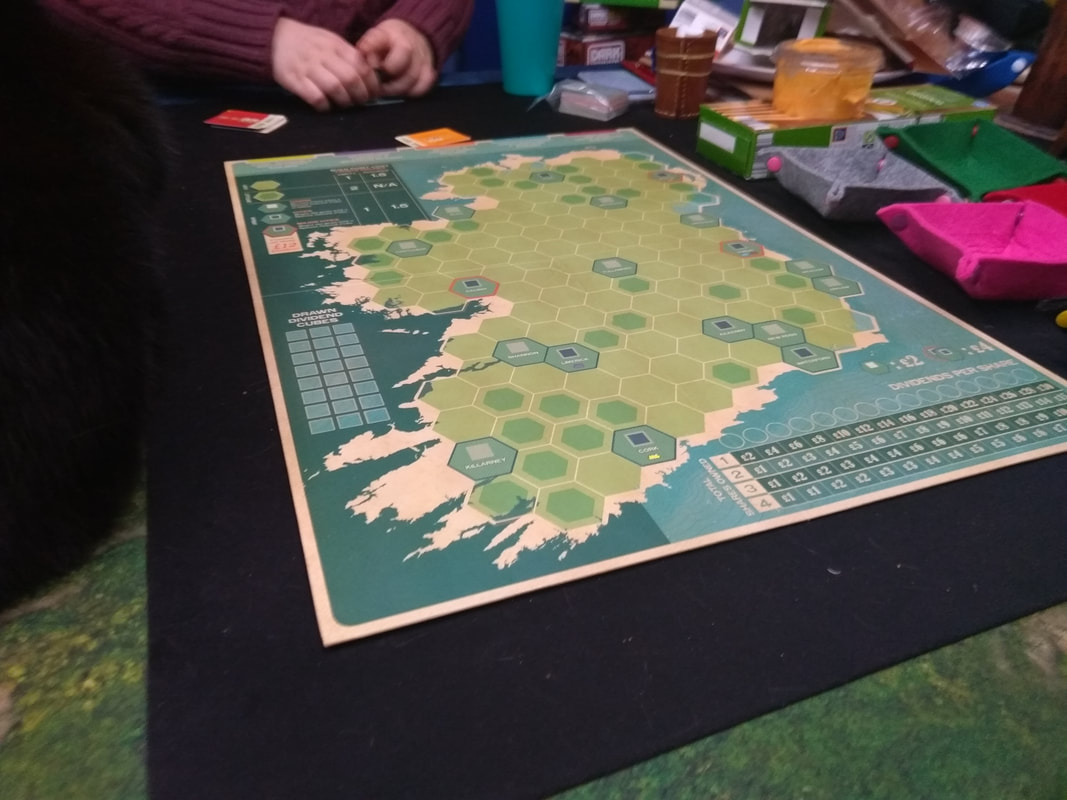
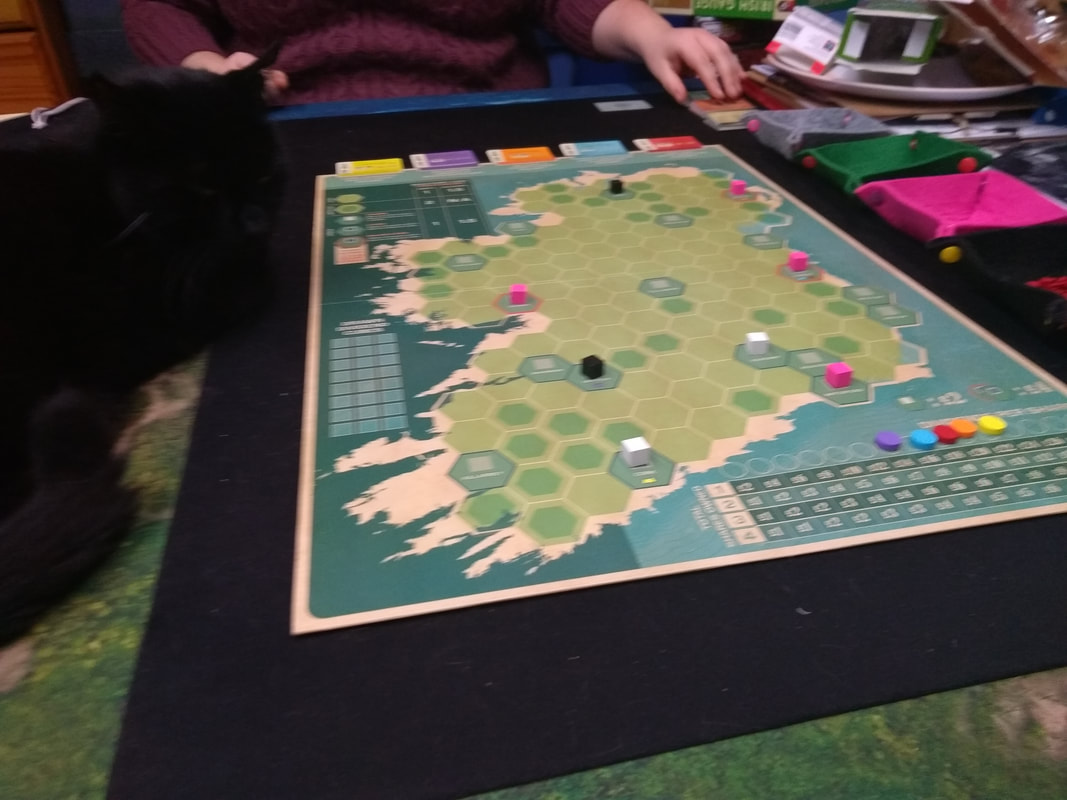

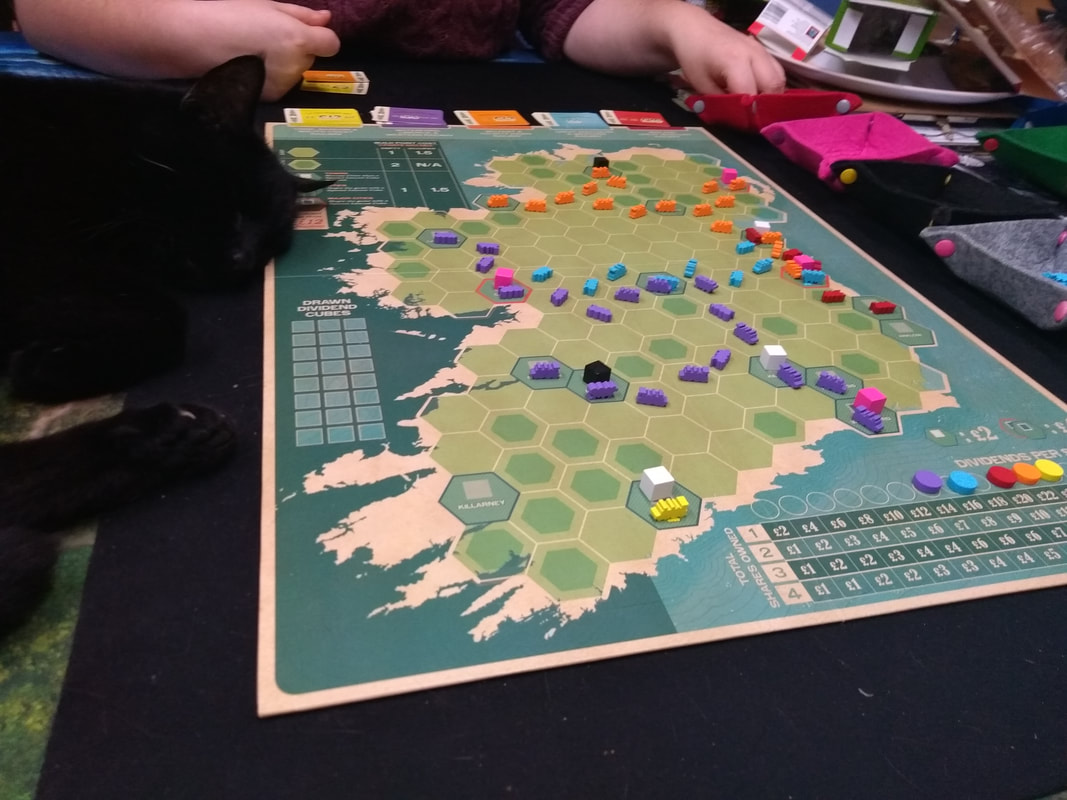
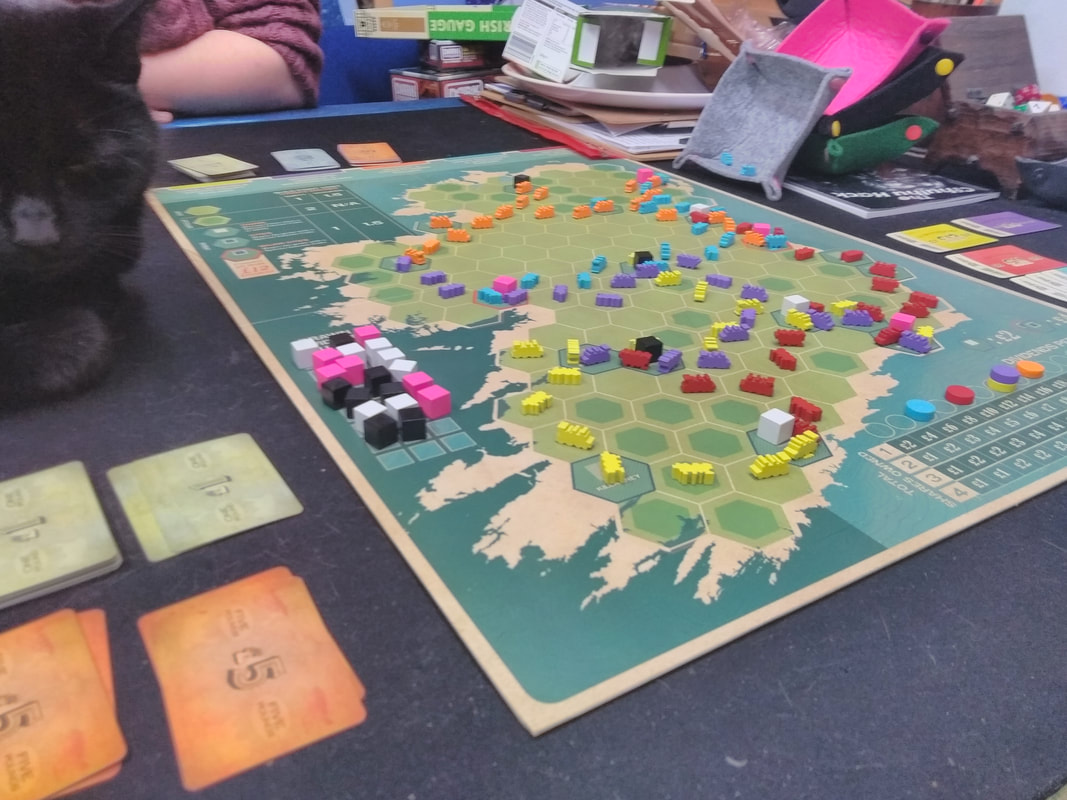
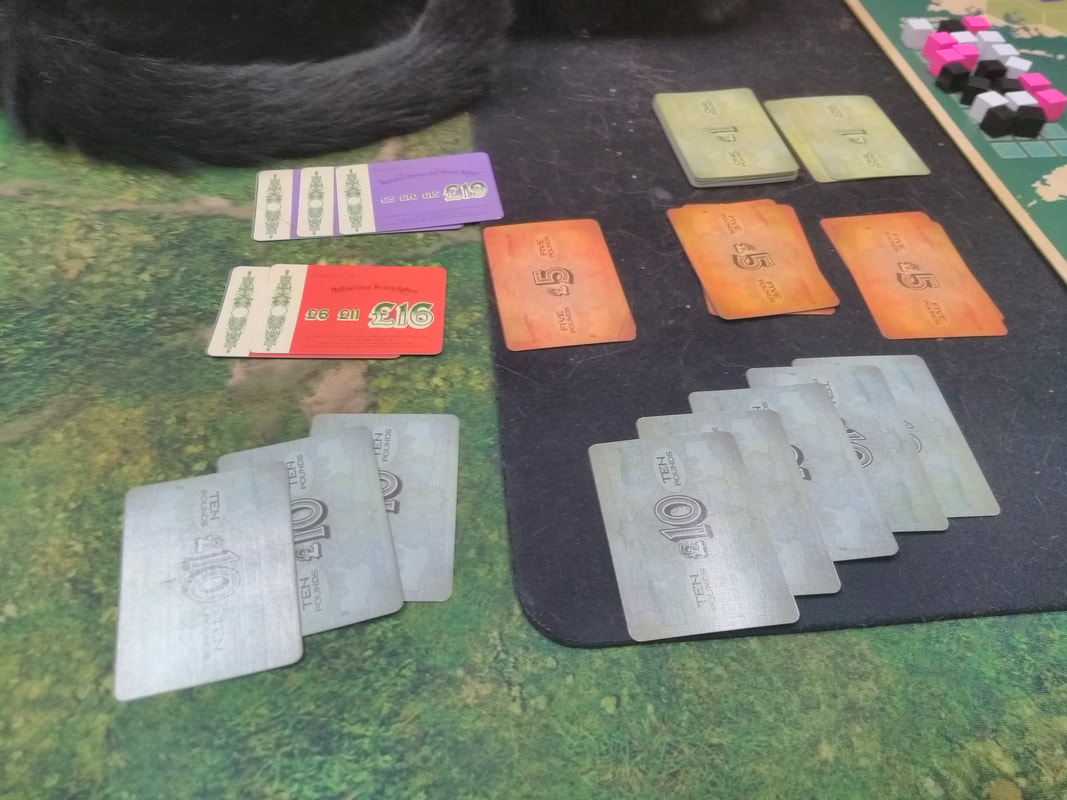
 RSS Feed
RSS Feed
